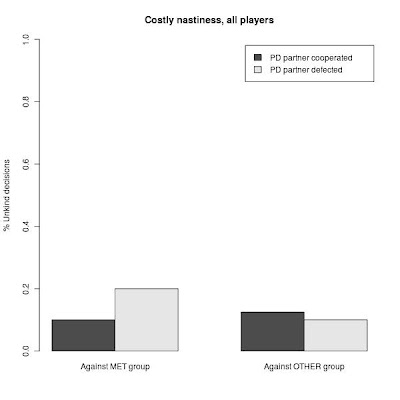This is a provocative question for Arianna and others of her persuasion. Much of it goes over similar ground to Paul Samuelson's address to a conference of evolutionary economists a couple of years ago.
Evolutionary economics takes its cue from biology and sees the economy as an ecosystem, with an endless variety of different "species" (firm strategies) competing, right? And as a result EEers reject the rationalistic concept of equilibrium, whether market or game-theoretic. The world is always moving forward, never at rest, and behaviour is never perfectly adjusted between different actors.
I find these claims pretty plausible, and ironically more plausible in my field -- political economy, where straight Nash Equilibrium is completely dominant -- than in the study of markets.
But.
1. Biologists use equilibrium concepts all the time, and these concepts were adapted from game theory by John Maynard Smith. Indeed, instead of being looser than "rational" game theory, evolutionary game theory concepts actually make tighter predictions: an Evolutionarily Stable Strategy is always a Nash Equilibrium, but not the other way round.
2. Equilibrium has been tested in the lab, and holds up pretty well -- e.g. in auction markets. I am not claiming we can naively generalize from the lab to real markets. But if it works well in the lab, doesn't that support the underlying theory?
3. One major use of equilibrium predictions is to generate comparative statics (ie predictions that if parameter X varies, outcome variable Y will vary with it in some specific way). Even if economies never reach equilibrium, the forces pushing them towards equilibrium may still generate the same comparative statics. For example, although the voting behaviour that we observe is not compatible with the main equilibrium voting models -- people vote too much -- still, they vote less when the election is less competitive, as the models predict.
4. Social science is all about the search for surprising insights. Equilibrium concepts -- more fundamentally, the idea that people react to incentives -- are a good way to generate these insights. (One random example: smoking bans in pubs might increase child cancer, because more people stay at home and smoke there.)
So, what's wrong with equilibrium?



